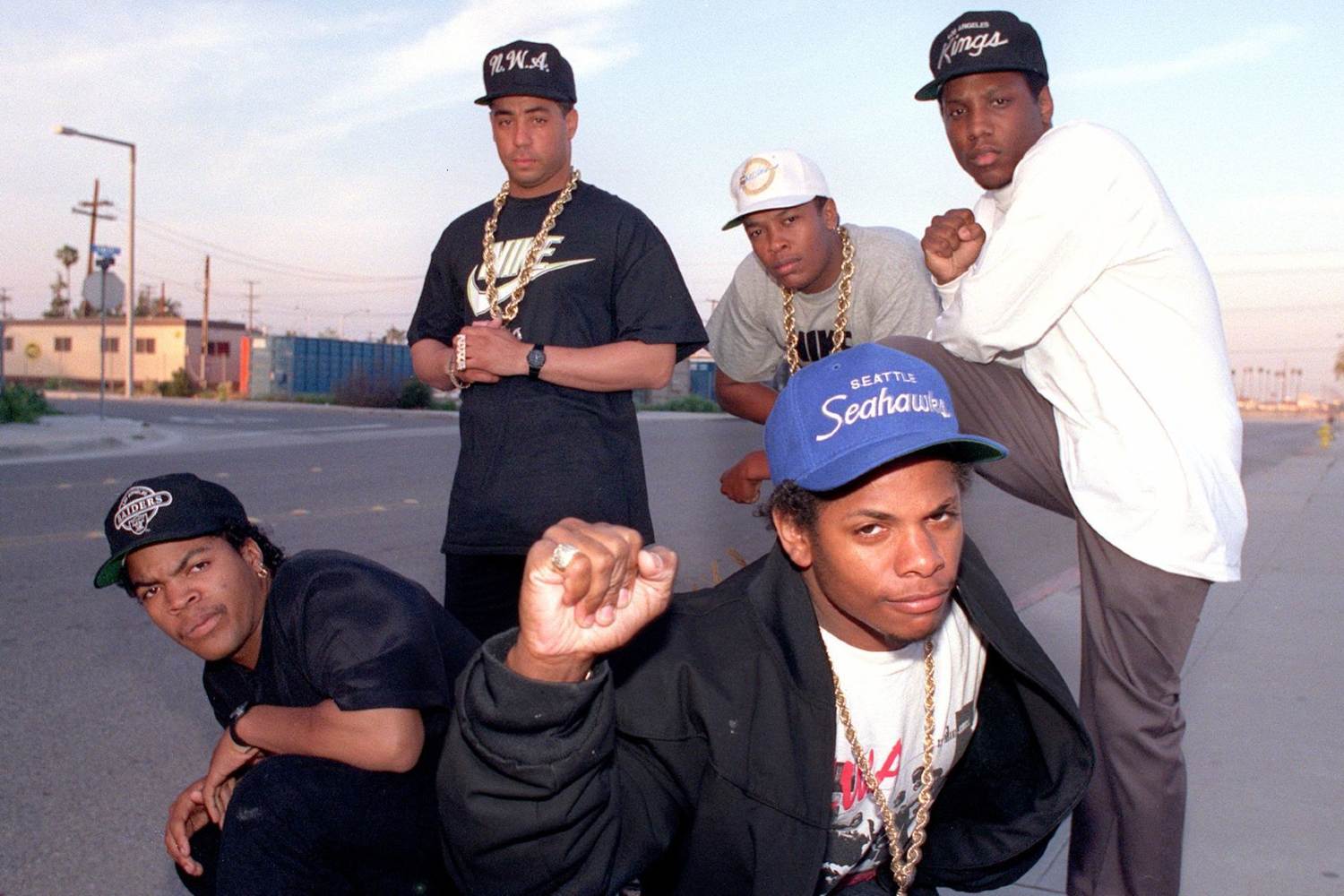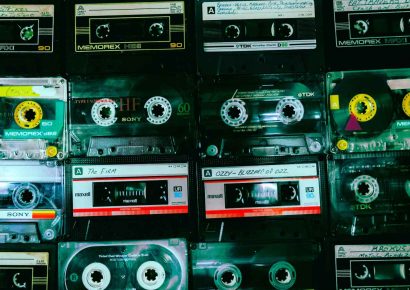Proven (some ridiculous) ways to arouse the ire of commercial radio programmers according to these banned songs
Getting your song banned isn’t going to generate the sort of royalties that will make your next pow-wow with your bank manager a happy one. But you can trade poverty for bragging rights wth banned songs.
However, having half the Skyhooks’ debut album Living In The Seventies banned from radio in the mid-’70s didn’t stop it from becoming the biggest selling Australian album at the time with 200 thousand copies and a 16-week sleep-in at #1.
The songs included masturbating in a cinema, buying dope in trendy Carlton, and ‘You Just Like Me ‘Cos I’m Good in Bed’ which 2JJ played as its first song when it launched in January 1975.
Read all the latest features, columns and more here.
In May 1978 came the debut single by the unknown Cold Chisel, written through the eyes of a bitter and disillusioned Vietnam War vet about the Battle of Khe Sanh.
It was littered with drug references and the great line “their legs were often open, but their minds were always closed,” and the censor primly binned ‘Khe Sanh’ from airplay.
The single stalled at #43 on the national charts. But one station in their hometown Adelaide kept playing it defiantly and it reached #4 there.
Years on, all was forgotten. In January 2018 ‘Khe Sanh’ topped Triple M’s “Ozzest” 100 for the ‘best Australian’ songs of all time, it was #8 in APRA’s 2001 poll of all-time best Australian songs, and dubbed unofficial team song by the Australian cricket team on its 1995 Caribbean tour.
Here are six banned songs and ways to arouse the ire of commercial radio programmers.
1. Mumble like hell
No one could understand the deliberately mumbled words of 1963 garage anthem ‘Louie, Louie’ by The Kingsmen. But radio figured it was probably obscene and banned it anyway. The FBI investigated for 31 months but gave up because it couldn’t interpret the words.
In 2005 the song made headlines again after a school banned its marching band from playing it. We’re not making any of this up (and banned songs are certainly not restricted to just radio it seems).
2. Don’t read the news today, oh boy
Split Enz seemed to have their first UK hit with ‘Six Months In A Leaky Boat’ (1982). Then the Falklands War broke out, and radio didn’t want families of sailors to worry they were in unsafe vessels and pulled the track, joining this list of banned songs.
The Gang of Four’s 1982 ‘I Love A Man In Uniform’ hit the eject button for the same war.
Meanwhile, the 1991 Gulf War and September 11 attacks led to the removal of Phil Collins’ ‘In The Air Tonight’, Blondie’s ‘Atomic’, Edwin Starr’s ‘War (What Is It Good For)’, Abba’s ‘Under Attack’, The Bangles’ ‘Walk Like An Egyptian’, Megadeth’s ‘Holy War’ and, for good measure, the entire Rage Against The Machine catalogue.
Melbourne pop duo Bachelor Girl’s ‘I’m Just A Girl’ lost out as its video was shot in an airport with scenes of a security breach, and David Bowie’s ‘Space Oddity’ (1969) was dropped as Apollo XI mission (Buzz Aldrin, Neil Armstrong and Michael Collins) was headed to the moon.
It initially had no airplay because who wanted a song about an astronaut drifting off into space? But when the mission returned safely, the BBC played the song, and it reached #5 in the UK.
3. Admit women have periods
On the list are ‘Happy And Bleeding’ by PJ Harvey, ‘Crimson Wave’ by Tacocat, ‘28 Days’ by U.S. Girls, ‘Only Women Bleed’ by Alice Cooper, ‘Period Piece’ by Lena D, ‘Satisfaction’ by The Rolling Stones (“baby better come back later next week”), ‘On The Rag’ by Pulsallama and ‘Heavy Flow’ by Toast.
4. Fucking with the police
Operation Hammer was a major LAPD initiative that began in April 1987 to take back the streets of South Central Los Angeles from gangs. By 1990 over 50 thousand people were arrested, causing anger as many African-American and Hispanic youths were being victimised unnecessarily.
“It was just too much to bear, to be under that kind of occupying force [cops], who was abusive. It’s just, enough is enough. Our music was our only weapon. Nonviolent protest.”
That was Ice Cube, starting out his career with NWA.
NWA’s ‘Fuck Tha Police’ (1988) and Ice-T & Body Count’s ‘Cop Killer’ (1992) were two messages that made their way to Australia, when local cops and politicians tried to have them pulled from airplay. When 3JJJ was asked to stop playing it, they famously repeated the banned song for 24 hours! When they were forced to stop, they then played ‘Express Yourself’ for another 24 hours, protesting the censorship of the banned songs action.
NZ Police Commissioner John Jamieson moved to stop Ice-T touring New Zealand.
The video for Game’s ‘Red Nation’ (2011) featuring Lil Wayne, saw them perform with downtown Los Angeles in the background in a post-terrorist attack with flares and smoke. MTV and BET banned it because it seemed to suggest gang affiliation.
In 2019 Western Sydney rap group OneFour were forced to cancel a national tour after venues were “spoken to” by police on grounds of gang tie-ins… and two members were later stopped from attending the ARIA awards.
5. Double up on double meanings
Radio has a simple rule about double meanings: assume it’s dirty talk and banish it.
In the Kinks’ ‘Lola’ (1970), when an innocent meets a transvestite in a Soho bar and reckons, “I’m glad I’m a man and so is Lola,” does he mean Lola is a man or is Lola glad he’s a man?
On ‘If U Seek Amy’ by Britney Spears (2009), is she looking for a woman called Amy or does it really spell “FUCK Me’.
Is fucking what the Beatles were talking about on ‘Why Don’t We Do It On The Road’ (1968) or was it dancing as they insisted?
In ‘Girl’ the Fab Four managed to sneak the line “tit tit tit tit” into the backing vocals, the scamps.
Was The Shamen’s ‘Ebeneezer Goode’ (1992) about a gent or a pro-ecstasy ditty chanting “E’s are good.”
When the Small Faces sang “I get high!” in ‘Itchicoo Park’ (1967), did they actually mean a buzz from playing truant, which they claimed.
Here’s a couple which got through, though:
In ‘Umbrella’ (2007) Rihanna uses it as a symbol for protection, like a condom (“Ooh, baby/ It’s rainin’, rainin’ baby/Come here to me/Come into me”), while Jay-Z calls himself rain man and responds his equipment is in working order (“No clouds in my stones”).
Bryan Adams’ ‘Summer Of ’69 from 1984 is not so much about the year but the sexual position.
Similarly do your maths: ‘34+35’ by Ariana Grande (2020) adds up to 69.
Harry Styles admitted onstage that ‘Watermelon Sugar’ is not about a dessert but female orgasm.
From the John Travolta/ Olivia Newton-John Grease soundtrack, ‘Greased Lightning’ got the chop because of the line “it ain’t no shit” but no one picked up that elsewhere was the Italian swear word “fongool” for get stuffed.
The lines “Slam it to the left if you’re having a good time/Shake it to the right if you know that you feel fine” in ‘Spice Up Your Life’ (1997) by Spice Girls is actually about cooking meth.
Similarly, BBC radio presenter Mike Read was happily spinning Frankie Goes To Hollywood’s debut ‘Relax’ (1983) when lines like “when you want to come” and “when you want to suck to it” leaped out at him that the song title wasn’t about meditating or chilling out on holiday.
“I can’t play this!” he shrieked before yanking it off mid-play.
Alas it went to #1 and obstinately hung around there for a couple of weeks and TV show Top Of The Pops had to play it on its Christmas edition.
6. Lose Your Faith
The thing about Kate Bush’s 1985 hit ‘Running Up That Hill’ coming back to #1 in 2022 after being featured on Netflix series Stranger Things is it’s got ‘A Deal With God’ added in brackets.
That was its original title, about women and men understanding each other only by exchanging roles, after making a deal with the Almighty.
Bush’s UK record company EMI warned the singer in 1985 the song could banned by religious countries like Italy, France, Ireland – and even Australia, apparently, said Kate!
Australian radio dealt with the exasperated line, “Christ you know it ain’t easy!” on The Beatles’ ‘The Ballad of John And Yoko’ (1969) by drowning it out with a drum beat.
‘Hard Headed Woman’, a fun song from 1958 by Elvis Presley was deemed blasphemous in some areas of the USA because it mentioned Biblical figures out of the context of the Bible.
These redneck areas also banned The Beach Boys’ ‘God Only Knows’ (1966) even though it was written as a spiritual love song. In a travesty, the song Paul McCartney would hail as “the greatest song ever written” was relegated to a b-side by a nervous record company.
The line, “imagine there’s no heaven” from John Lennon’s ‘Imagine’ (1971) had Christians up in arms.
Performers from Muslim and Hindu countries who take their gods in vain can expect assaults and jail sentences.
US hoppers also felt the wrath. Busta Rhymes’ 2009 album Back On My BS was banned from the United Arab Emirates because one track ‘Arab Money’ quoted verses from the Quran.
Rihanna issued a grovelling apology after a 2020 a fashion show which used the song ‘Doom’ by Coucou Chloe, which included the Muslim text known as a Hadith, believed to be the spoken words of the Prophet Muhammad.
Head here for more on NWA and their defiance and support from down under for banned songs.

